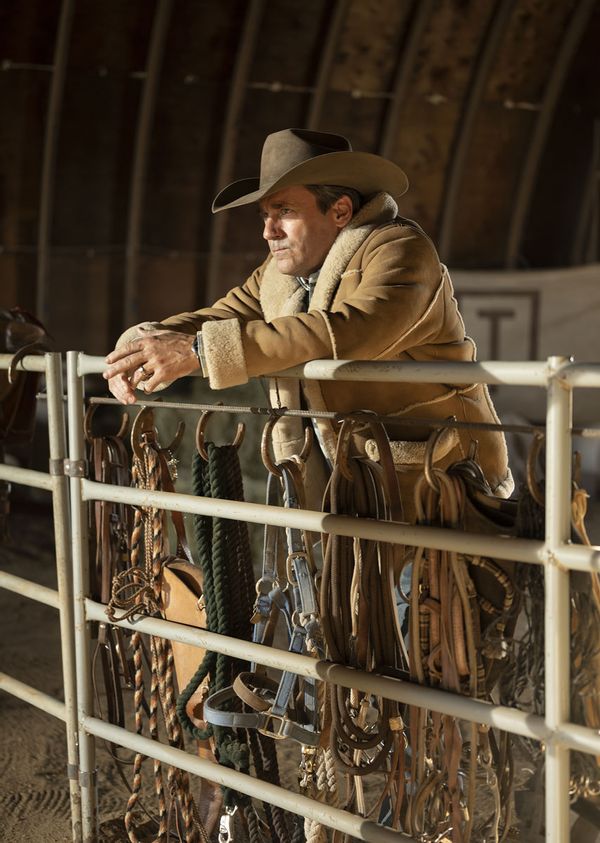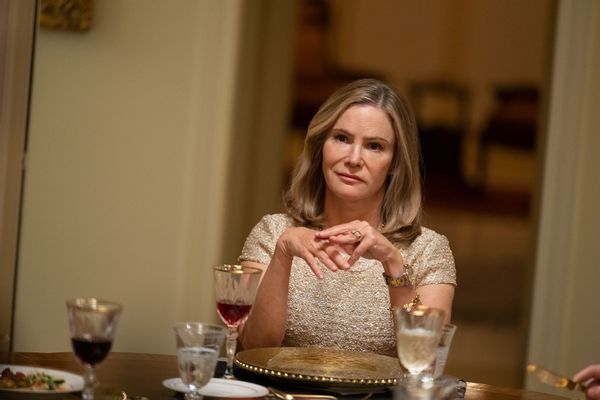Making “Fargo” great again: The latest season follows a caper in a time when Minnesota nice is dead
Each season of Noah Hawley’s “Fargo” is a study of the varying degrees to which we allow evil, American style, to triumph. Once you understand that, this fifth round takes on a certain inevitability, in that we were always going to end up . . . here. Setting Season 5 in 2019 and a time when evil ensnares all of us, consuming the show’s long presumed notion of “Minnesota nice,” is the closest to the present this show has ever dared to be.
As a brief card defining the term explains, “Minnesota nice” isn’t honest. The fabled front was always understood to be window dressing veiling frustrations, squelched desires, and countless other malignancies. That it would someday go up in flames was indubitable; that it would implode in our frighteningly divided era is realistic. The fifth installment takes us back to the show’s original feeling and also reduces the level of ambition that flavored past rides. But what is aspiration without economy or organization? An admirable try at best.
Any “Fargo” season that falls short of our high expectations is generally well-considered. The ’50s-era Kansas City setting of the fourth chapter was a world away from frigid Minnesota and North Dakota, forgoing the crime from one murder to examine the broader corruption of racial and class disparity. Stellar performances carried it, but the narrative efficiency buckled beneath the weight of its stylistic swings. This fifth case regains its footing by resuming its old pattern of pitting criminal teams against each other. This time each operates under the banner of the law.
Politics colors the outlook and action without expressly naming the transformative presence that has infected the way we view our neighbors. Not since the second Reagan-influenced season has the series framed its story in such politically tinged terms. But the only side it overtly takes is that of the mice trapped between apex predators — namely a skinny housewife Dorothy Lyon (Juno Temple).
Dorothy is a loving wife and mom who would do anything to protect her daughter Scotty (Sienna King), including escorting her child out of a school conference that turns into a riot. In the frenzy she accidentally Tasers a cop, which gets her arrested, booked and fingerprinted.
“Minnesota nice” isn’t honest. The fabled front was always understood to be window dressing veiling frustrations, squelched desires, and other malignancies.
With this, sinister figures from Dot’s past come out of the woodwork. But she’s already accustomed to fighting. Her gentle husband Wayne (David Rysdahl) is more eager to appease his wealthy and powerful mother Lorraine (Jennifer Jason Leigh) than stand up for Dorothy, whom Lorraine views as beneath her.
There’s a lot of that going around. In addition to its various interpretations of indebtedness, our steady normalizing of brazen misogyny is a major theme, a force against which Lorraine and Dorothy battle in their ways along with Officer Indira Olmstead (Richa Moorjani, “Never Have I Ever”), the breadwinner supporting a manchild who barely lifts a finger around the house.
 Jon Hamm as Roy Tillman in “Fargo” (Michelle Faye/FX)If Sheriff Roy Tillman (Jon Hamm, continuing his villain streak) had his way, no woman would be in a position to do anything but serve men. In his North Dakota fiefdom, he styles himself as a “constitutional” lawman who believes his Biblical interpretation of right and wrong overrules all, including federal law. Other law enforcement officials are at a loss as to how to handle his minions, especially his fashy son Gator (Joe Keery).
Jon Hamm as Roy Tillman in “Fargo” (Michelle Faye/FX)If Sheriff Roy Tillman (Jon Hamm, continuing his villain streak) had his way, no woman would be in a position to do anything but serve men. In his North Dakota fiefdom, he styles himself as a “constitutional” lawman who believes his Biblical interpretation of right and wrong overrules all, including federal law. Other law enforcement officials are at a loss as to how to handle his minions, especially his fashy son Gator (Joe Keery).
This season’s action infers that maybe the law is less practical in dealing with people like Gator and Roy than a sense of justice and a fierce survival instinct. Sometimes justice manifests in singular acts of true good or blind charity. Sometimes it materializes through gloriously weird chaos actors like Ole Munch (Sam Spruell), the show’s ode to inscrutable Coen Brothers villains like Gaear Grimsrud from the 1996 film or Anton Chigurh from 2007’s “No Country for Old Men.”
Every actor in this season entirely inhabits a mood, not simply a role, with Temple’s unreasonably perky Dot leading the way. Hawley’s character are as outsized as ever, and the mythical Fahr-goh accent still flogs the ear – but the overwrought, flowery speeches that drowned the 2020 season aren’t as overwhelming.
That doesn’t mean Hawley has reverted to straightlaced dialogue. This time he’s more judicious in applying it, maximizing the pleasure potential of lines like, “Does my discussing matters of state in moist repose bother you?”
Mainly, though, it’s casual, creeping malevolence energizing the plot’s tick-tick-tick and boom, along with the show’s predilection for the absurd. Dot is at her deadliest when she’s setting snares for those hunting her, each one reminiscent of a “Tom & Jerry” cartoon despite their lethality. Roy, for all of his professed devotion to upholding Christian values, wears his kink just under his shirt. (Seeing pierced nipples on the man who played Don Draper shouldn’t be disturbing. And yet.)
For all its familiarity in tone and approach, the latest “Fargo” case has a more cynical twang to it.
If anyone works overtime in restoring the show’s status as an unmitigated treat, it is Leigh and her rendition of a rich matron who would make Joan Crawford proud. Temple’s roly-poly Minnesota accent is front and center, but the Golden Age mid-Atlantic expression Leigh breathes into Lorraine is something to savor, especially when she has to devour an unsuspecting man for lunch.
 Jennifer Jason Leigh as Lorraine Lyon in “Fargo” (Michelle Faye/FX)Hawley’s realignment of the utility of law enforcement since his last turn with this format (which was produced in 2020, before a summer that yielded calls to defund the police) is slightly underbaked. While Lamorne Morris is a welcome sight whenever he turns up, his North Dakota deputy Witt Farr receives little character development in the six episodes provided to critics compared to Moorjani’s local cop.
Jennifer Jason Leigh as Lorraine Lyon in “Fargo” (Michelle Faye/FX)Hawley’s realignment of the utility of law enforcement since his last turn with this format (which was produced in 2020, before a summer that yielded calls to defund the police) is slightly underbaked. While Lamorne Morris is a welcome sight whenever he turns up, his North Dakota deputy Witt Farr receives little character development in the six episodes provided to critics compared to Moorjani’s local cop.
Given the lean toward female protagonists this season that’s somewhat forgivable, but that doesn’t prevent his profile from seeming thin. Other actors make their characters’ relative lack of backstory work wonders, especially Dave Foley’s obsequious but effective Danish Graves, Lorraine’s devoted fixer blessed with one of the series’ best names.
Want a daily wrap-up of all the news and commentary Salon has to offer? Subscribe to our morning newsletter, Crash Course.
For all its familiarity in tone and approach, the latest “Fargo” case has a more cynical twang to it. This is the first season in which the principled heroes are separated by a physical and emotional distance without developing anything more than professional comity. Heroic duos aren’t obligated to fall in love but watching friendships develop in the first three seasons provided some gravitational warmth to compensate for all the coldblooded killing.
Lacking that, the season’s appealing jauntiness takes on a grim weight even as it asks us to ponder what we owe to each other. In Dorothy Lyon’s living nightmare keeping everything she’s fought for, including her freedom, means operating free of all debts, monetary and moral — a pragmatic strategy that’s also a little melancholy, as is the plot’s eventual hint that salvation may rely on appealing to the better angels of lesser evils.
But within that, this fifth turn with “Fargo” conveys a confidence that all will turn out as expected, a benefit of this chapter meeting us where we are.
“Fargo” premieres with with two episodes at 10 p.m. Tuesday, Nov. 21 on FX, streaming the next day on Hulu. New episodes air Tuesdays.
Read more
about “Fargo”

